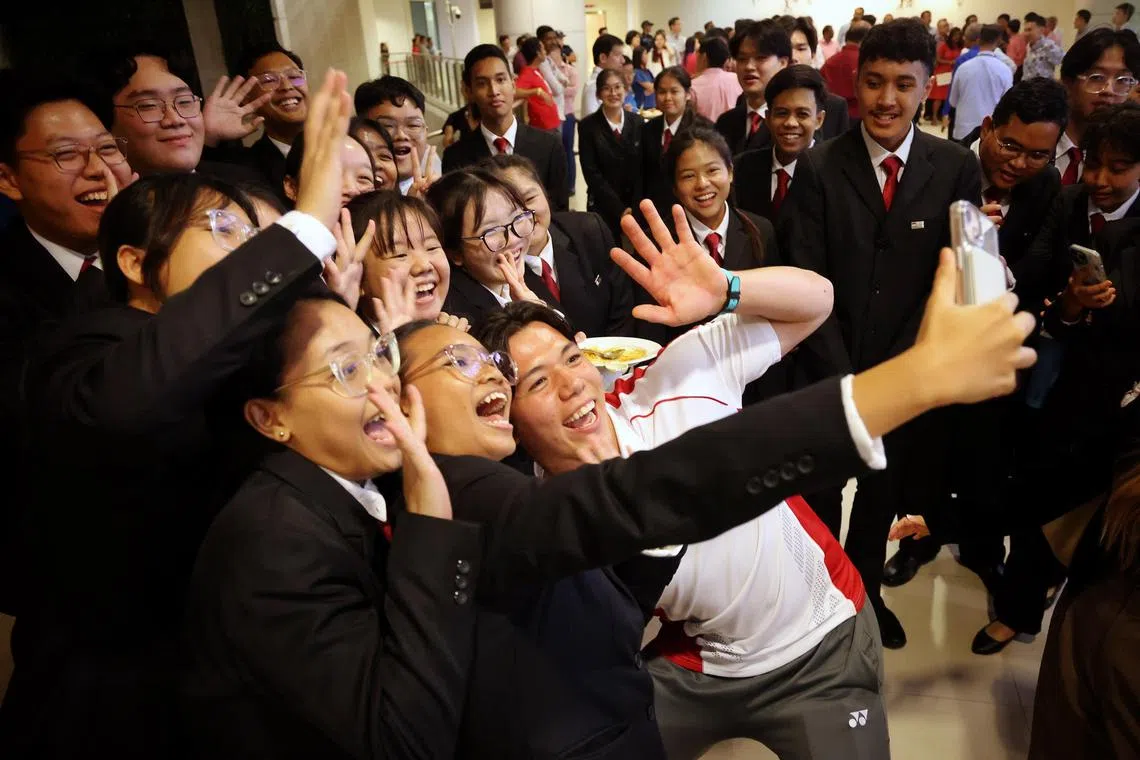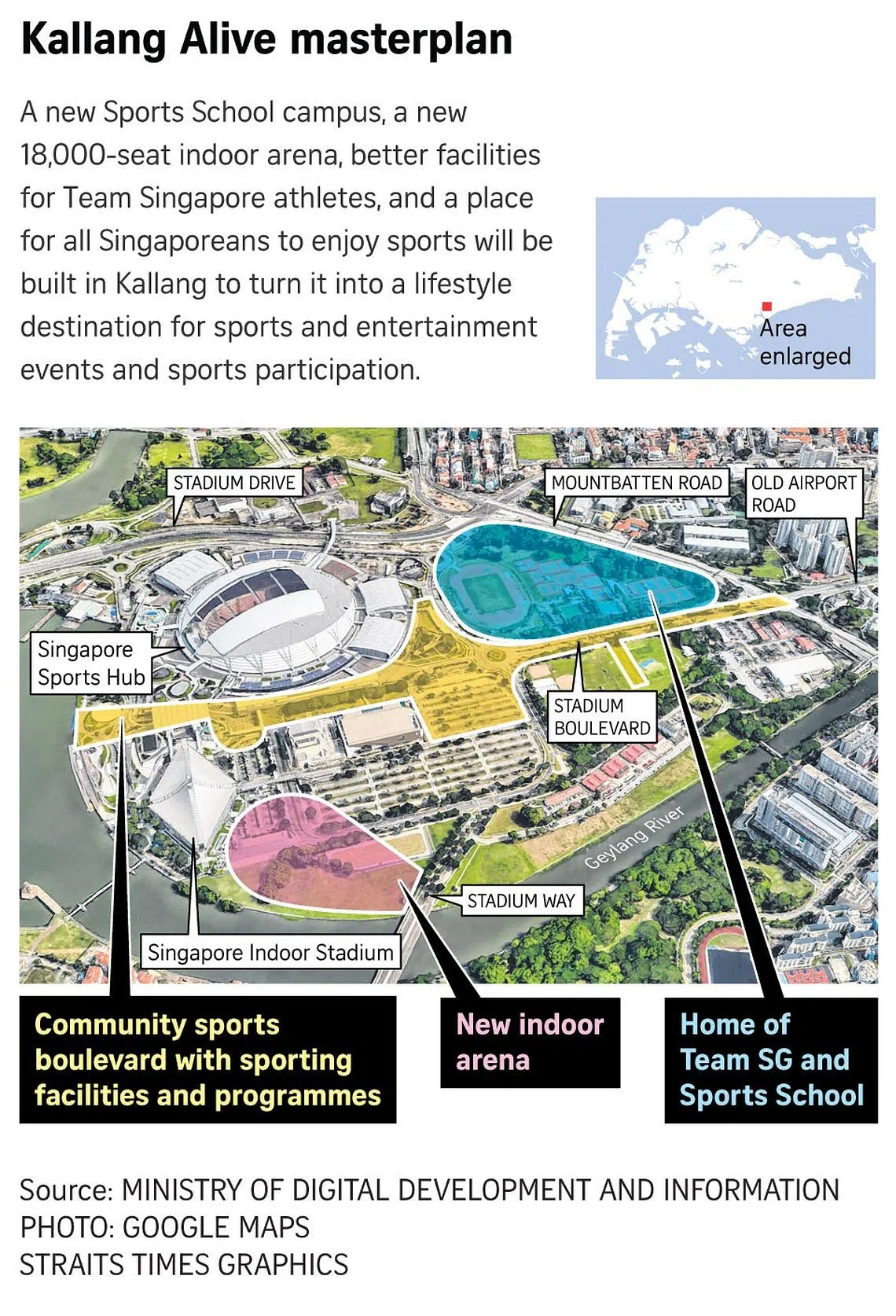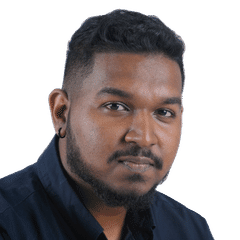Commentary
PM Lawrence Wong’s National Day Rally sports plans must be a catalyst for a mindset shift here
Sign up now: Get the biggest sports news in your inbox

Singapore's Olympic medallist Maximilian Maeder posing for a photo following the National Day Rally at ITE College Central on Aug 18.
ST PHOTO: JASON QUAH
The saying “It takes a village to raise a child” cannot be more apt for nurturing an elite athlete, as our newest Olympic medallist, Maximilian Maeder, can attest to.
With the Government committed to bolstering Singapore’s sporting culture and enhancing high-performance outcomes, as underscored by plans unveiled by Prime Minister Lawrence Wong during his inaugural National Day Rally speech
A new 18,000-seater indoor arena is to be built,
The hardware will fall into place, but if we want to ensure a continuous pipeline of sporting talent and make a true splash on the global stage, it will take more than just the Government’s effort.
A shift in mindset from athletes, parents and the private sector is needed to realise this vision.
Future athletes who will be able to enjoy the state-of-the-art facilities should feel emboldened by the Government’s push to rewrite the narrative of what success means.
Pursuing sports as a career in Singapore is not as uncanny as it once was, and the likes of sprint queen Shanti Pereira and Olympic bronze medal-winning kitefoiler Maximilian
But the reality is that such examples of athletes reaching the top of their sport, whether in Asia or beyond, are still rare.
While we celebrate personal bests and stories of overcoming adversity, we must not lose sight of the fact that ruthlessness is needed to win championships and medals.

At the Paris Olympics, Singapore won just one out of 987 medals on offer, a mammoth task for a tiny nation. But so did Dominica, Grenada and Saint Lucia – countries with smaller populations than Singapore. Every four years, the Games show us that others will only get quicker, stronger and better with each edition.
Too often, after major Games, we applaud participation and dish out encouragement. Participation is well and good, but the widening gap between some of our best and the world’s best is a reminder of how far we are, and how much there is to grow.
As part of a new campaign by the International Paralympic Committee, athletes like Australian Paralympic canoe champion Curtis McGrath, Italian sprint champion Ambra Sabatini and Argentinian wheelchair tennis ace Gustavo Fernandez have put up messages on social media that said “I won’t be participating at the Paris 2024 Paralympic Games”, but instead stated: “I will be competing.”
This campaign serves as a reminder that para-athletes too should be recognised for their athletic prowess and winning drive, as our own Paralympic champion Yip Pin Xiu has shown both in the pool and when she helped spark a discussion on greater prize money parity in 2021.
It’s a lesson we can apply to our own ambitions.
We can no longer afford to be satisfied with participation points. Instead, we need to establish clear, constructive ways to hold athletes and officials accountable for their performances. Our athletes need to be game for the heightened scrutiny that comes with elite sport.
Parents, too, have a crucial role to play in being the essential backbone of future champions.
What truly sets Joseph Schooling and Maximilian apart, beyond their Olympic medals, is the unwavering support they received from their parents. It was relentless and unconditional, not based on the hope of success, but grounded in a genuine belief in their potential and passion.
Truth be told, not everyone becomes a champion. What happens if total commitment to sport does not bring the desired outcome? Most parents still need to be convinced that pursuing sports as a career can benefit their children in the long term.
In this regard, the Government could do more to highlight the various ways an individual can stay in sports as a career even after their competitive days are over. What safety nets are in place?
This is where the private sector can play a part.
The world is looking to close the margins and make champions and so investment in sport will continue to grow.
Corporate sponsors need to see their involvement as more than national service.
Take the latest example of Maximilian, who was supported by a partnership between Yeo Hiap Seng (Yeo’s) and the Ng Teng Fong Charitable Foundation, long before he rose to fame in Paris.
This sponsorship provided him with the necessary support for training, equipment and personal development, giving him the platform to focus on what he needed to do.
To elevate sports in Singapore, we all need to come together. One day, we shall see what this village can truly produce.



